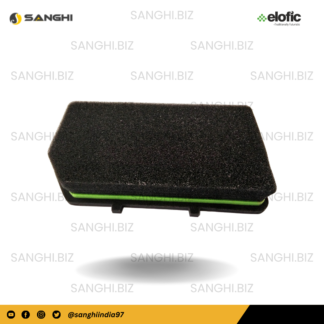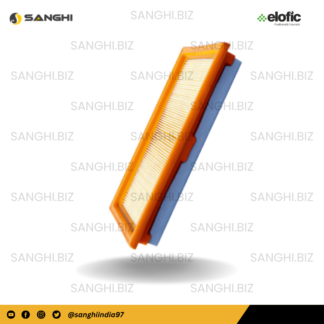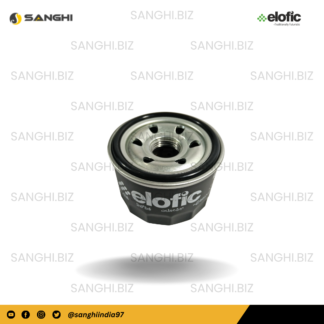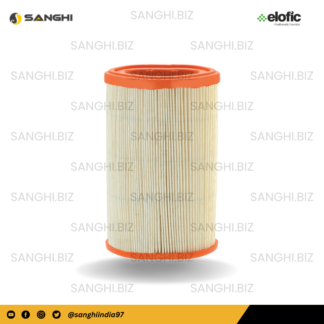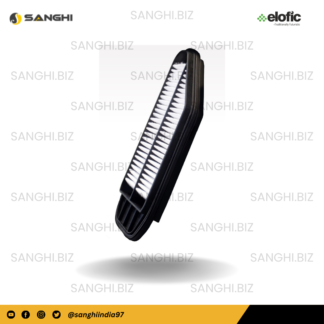How to Choose the Right Oil Filter for Your Vehicle
Choosing the right oil filter for your vehicle is essential for maintaining engine health and ensuring smooth operation. The oil filter plays a crucial role in removing contaminants from the engine oil, which can otherwise cause damage to engine components. With a variety of oil filters available in the market, selecting the right one can be daunting. Here’s a guide to help you make an informed choice.
1. Understand the Types of Oil Filters
Oil filters come in several types, each designed for specific purposes:
Primary (Full-Flow) Oil Filters: These filters are the most common and filter all the engine oil. They are designed to remove larger particles and prevent them from causing damage.
Secondary (Bypass) Oil Filters: These filters clean a small portion of the oil at a time and are used in conjunction with primary filters to remove finer particles.
Cartridge Oil Filters: These filters do not have a metal canister and are housed within a permanent housing in the engine. They are eco-friendly as they produce less waste.
Spin-On Oil Filters: These are the most common type and are easy to replace. They come with a metal canister and are a complete unit that is discarded after use.
2. Check the Owner’s Manual
Your vehicle’s owner’s manual is the best source of information when it comes to choosing the right oil filter. It provides specific recommendations regarding the type and specifications of the oil filter suitable for your vehicle. Always follow the manufacturer’s guidelines to ensure compatibility and optimal performance.
3. Consider the Filter Material
Oil filters use different materials for their filtering media, each with varying levels of effectiveness:
Cellulose: Made from wood pulp, cellulose filters are affordable and can trap particles as small as 8-10 microns. They are typically used for short-term protection.
Synthetic: These filters use man-made fibers and can capture particles as small as 5-7 microns. They offer better performance and longer lifespan compared to cellulose filters.
Micro-Glass: Made from fine glass fibers, micro-glass filters provide superior filtration efficiency, trapping particles as small as 2-5 microns. They are often used in high-performance vehicles.
4. Evaluate the Filter’s Efficiency
The efficiency of an oil filter is measured by its ability to capture contaminants of specific sizes. This is often represented by the filter’s micron rating and efficiency percentage. A lower micron rating means the filter can capture smaller particles, and a higher efficiency percentage indicates better filtration performance. Look for filters with a micron rating of 10 or lower and an efficiency rating of 95% or higher for optimal performance.
5. Check for Compatibility
Ensure that the oil filter you choose is compatible with your vehicle’s make and model. This includes checking the filter’s size, threading, and sealing features. Using an incompatible filter can lead to oil leaks, poor filtration, and potential engine damage.
6. Consider the Brand and Quality
While there are many brands available, choosing a reputable and high-quality brand can make a significant difference. Avoid cheap, generic filters as they may not provide adequate filtration and protection for your engine.
7. Factor in Your Driving Conditions
Your driving conditions can influence the type of oil filter you need. If you drive in extreme conditions, such as dusty environments, frequent short trips, or heavy towing, you may require a filter with higher capacity and efficiency to handle the increased load of contaminants.
Conclusion
Choosing the right oil filter for your vehicle is a critical aspect of maintaining engine health and performance. By understanding the different types of filters, consulting your owner’s manual, considering the filter material and efficiency, checking compatibility, and selecting a reputable brand, you can ensure that your engine remains well-protected. Regular oil and filter changes, according to your vehicle manufacturer’s recommendations, will help keep your engine running smoothly and extend its lifespan.
